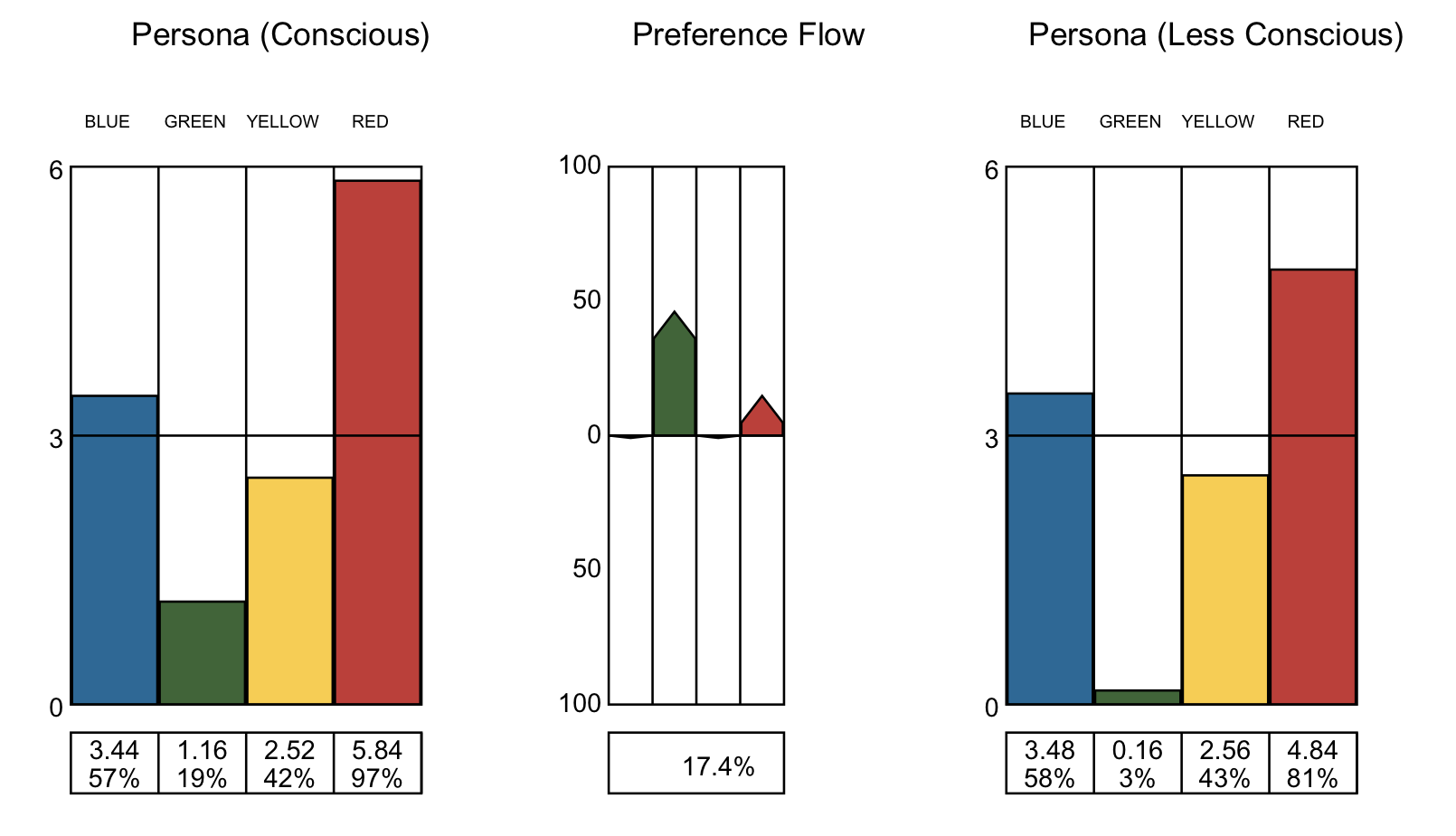Insights Discovery Profile
I was first introduced to Insights Discovery when Scott Schwefel of Discover Yourself ran an assessment for board and leadership team of CaringBridge. I had experience with other assessment tools, but the ability to use Insights as a team and to immediately use it to improve communications impressed me. I’ve now taken the assessment four different times (same scores!), and have introduced a lot of people and teams to it.
My key takeaway I tell people when using Insights is that their own preferences are important to be aware of, but even more important are the preferences of those around you. Use it to get better interactions with them, not to expect people to come to you and your preferences.
My Insights profile is 22 Reforming Director (Classic).

I love how Insights can be used to improve communication. In that spirit, I’m sharing my verbatim feedback from my own assessment for communication. Even the couple that make me cringe…
Communication
Effective Communications
Communication can only be effective if it is received and understood by the recipient. For each person certain communication strategies are more effective than others. This section identifies some of the key strategies which will lead to effective communication with Jamie. Identify the most important statements and make them available to colleagues.
Strategies for communicating with Jamie:
- Keep personal comments to yourself.
- Be enthusiastic and positive.
- Match your own assertiveness to his pace.
- Understand his goals and objectives.
- Be thoroughly prepared.
- Focus on the task at hand.
- Let him know he is in control.
- Speak quickly and clearly.
- Hold your ground when attacked.
- Be ready to ignore his seemingly arrogant demeanour.
- Respect his values and principles.
- Be practical, realistic and direct.
Barriers to Effective Communication
Certain strategies will be less effective when communicating with Jamie. Some of the things to be avoided are listed below. This information can be used to develop powerful, effective and mutually acceptable communication strategies.
When communicating with Jamie, DO NOT:
- Appear slow or unambitious.
- Challenge his authority “head on”.
- Go to a meeting with him without adequate facts and figures.
- Be vague or imprecise.
- Invade his privacy.
- Speak too slowly or hesitantly.
- Use off the cuff remarks.
- Impose your feelings onto him unless he shows willing.
- Be unrealistic or stray on to abstractions.
- Come unprepared and disorganised.
- Show disagreement with or disrespect for his principles.
- Try to control the conversation.